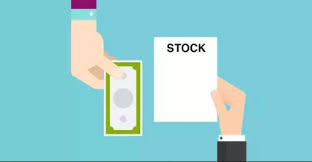Yesterday, I received an email from Mickey, who was concerned about the price at which we sell our stock and how that compares and interacts with the price of our stock in the stock market. We sell our stock in two basic ways – you can buy it directly from us, or you earn it directly from us by shopping. You can also buy our stock from other people, typically by using a stock broker who bids on your behalf in the stock market. In that case, iConsumer is not involved.
The price of the stock we sell directly (currently $.18/share) may be the same, higher, or lower than the price you can buy it from other people in the stock market.

When you’re getting our stock directly from us, we’re directly benefiting. When you buy it in the stock market, the seller is benefiting.
As I write this, the price the last person buying our stock in the stock market paid was $.15/share. Earlier this week it was $.10/share, and a couple of months ago it was over $.20/share.
I’m paraphrasing a bit … in a nutshell, Mickey thinks it’s wrong for us to directly sell our stock at a price that is different from the market price.
The Easy Answer
We don’t have a choice.
What Mickey is asking us to do is sell at the market price (sometimes called “at the market”), and the SEC doesn’t allow us to do that. The SEC requires us to set a single price (the “offering” price) for the stock we sell directly. The rules allow us, with some work and expense, to change the offering price up to 20% up or down from the single price we’ve set. We set the offering price at $.15/share last year and changed it to $.18/share later in the year. We think the SEC would be upset with us if we changed the price within that 20% range frequently, even though it is theoretically allowed. Getting the SEC upset is a bad move.

To change the offering price more than 20% takes a big deal SEC filing. We would have to stop rewarding people with stock for shopping while that filing is pending (and it can take months for the SEC to qualify the filing). It would also cost tens of thousands of dollars.
A Longer Answer
In theory, we could operate iConsumer under a different set of SEC rules that would allow us to change the offering price more frequently. But to operate under those rules would cost hundreds of thousands of dollars each year (we estimate about $500,000 per year). We’re not yet ready for that. It’s also harder to explain an ever changing stock back rate to our members, and that is a concern.
We do have an easier way to address the problem that might occur if the stock market price were to vary considerably from the offering price and stay that way for a long period of time: We can change the number of shares you earn when you shop, by changing the percentage back. When we increase the percentage back, you get more shares per dollar spent. If we were to see some long-term need to adjust that way, we would.
Long-Term Perspective
The market price of iConsumer stock is subject to such volatility that the price changes really don’t reflect much about iConsumer. It changes up and down so radically that when somebody buys just $70 worth of stock the price changes a lot. Reacting to that daily or even weekly doesn’t make sense to us at this point in our growth.

We’re a startup. We have publicly-traded stock only because we needed to do that in order to have a zillion shareholders. Our “true” IPO is somewhere in the future, if and when we get big enough to justify it. And the way that happens … our members shop and tell their friends!